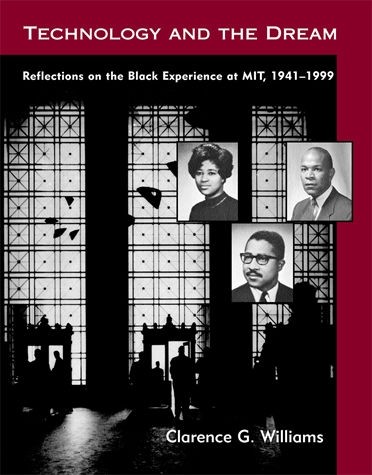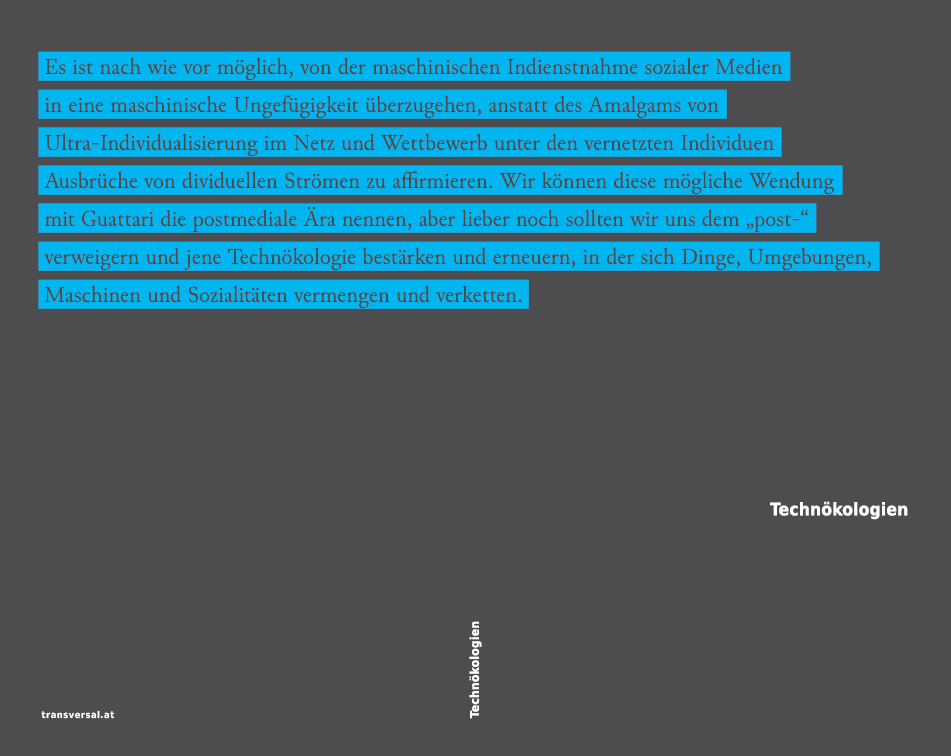Clarence G. Williams: Technology and the Dream: Reflections on the Black Experience at MIT, 1941-1999 (2001)
Filed under book | Tags: · black people, history of technology, interview, technology

“This book grew out of the Blacks at MIT History Project, whose mission is to document the black presence at MIT. The main body of the text consists of transcripts of more than seventy-five oral history interviews, in which the interviewees assess their MIT experience and reflect on the role of blacks at MIT and beyond. Although most of the interviewees are present or former students, black faculty, administrators, and staff are also represented, as are nonblack faculty and administrators who have had an impact on blacks at MIT. The interviewees were selected with an eye to presenting the broadest range of issues and personalities, as well as a representative cross section by time period and category.
Each interviewee was asked to discuss family background; education; role models and mentors; experiences of racism and race-related issues; choice of field and career; goals; adjustment to the MIT environment; best and worst MIT experiences; experience with MIT support services; relationships with MIT students, faculty, and staff; advice to present or potential MIT students; and advice to the MIT administration. A recurrent theme is that MIT’s rigorous teaching instills the confidence to deal with just about any hurdle in professional life, and that an MIT degree opens many doors and supplies instant credibility.
Each interview includes biographical notes and pictures. The book also includes a general introduction, a glossary, and appendixes describing the project’s methodology.”
Publisher MIT Press, 2001
Open access
ISBN 026223212X, 9780262232128
xi+1042 pages
Review: Nancy-Elizabeth Fitch (Oral History Review, 2005).
PDF (83 MB)
Comment (0)A Peer-Reviewed Journal About, 8(1): Machine Feeling (2019)
Filed under journal | Tags: · aesthetics, affect, feeling, machine, machine learning, sensation, subjectivation, technology

“Digital culture has become instrumental for capturing and managing what Raymond Williams would once have called “structures of feeling”. The journal issue A Peer-Reviewed Journal About Machine Feeling alludes to this, and points to a material analysis of aesthetics and culture, including its technical and social forms, and in the way that this concept was originally employed as an acknowledgment of the importance of the hard to capture dimensions of everyday life. What potential new sensibilities and structures of feeling may arise in such normalized registers of our habits? What new cultural and social forms and practices emerge in the coming together of machine learning and structures of feeling? In each their own way, the authors in this journal explore these questions.”
Edited by Christian Ulrik Andersen and Geoff Cox
Publisher Digital Aesthetics Research Centre, Aarhus University, Aarhus, 15 August 2019
Creative Commons BY-NC-SA License
ISSN 2245-7755
219 pages
With contributions by Mitra Azar, Daniel Chávez Heras, Michela De Carlo, Iain Emsley, Malthe Stavning Erslev, Tomas Hollanek, Rosemary Lee, Carleigh Morgan, Carman Ng, Irina Raskin, Tiara Roxanne, Rebecca Uliasz, Maria Dada, Tanja Wiehn, and Brett Zehner.
Comment (0)Christoph Brunner, Raimund Minichbauer, Kelly Mulvaney, Gerald Raunig (eds.): Technökologien (2018) [German]
Filed under book | Tags: · ecology, environment, media, media archeology, social movements, technology, technopolitics

“Im dividuell-maschinischen Kapitalismus geht Technologie weit über die dichotomen Figuren von Techno-Euphorie (maschinischer Fortschritt in der Hand von Menschen) und Techno-Phobie (Menschen als Instrumente der Maschinen) hinaus. In so unterschiedlichen Feldern wie finanziellen Derivaten und Kryptowährungen, digitalen Schnitten und Data Doubles, biometrischen Filmbildern und sozialen Medien werden Technologien zu Umwelt, Umhüllung, Umgebung.
Mit dem Begriffsvorschlag Technökologien und Beispielen aus der Medienarchäologie der 1990er und 2000er Jahre, vor allem aber anhand der Untersuchung konkreter aktueller Praxen versucht das vorliegende Buch, diesen Verschiebungen gerecht zu werden: In der Mitte der technökologischen Subjektivierung, die nicht selten die Form von Wut, Angst, Hass und Häme annimmt, ergeben sich auch neue Weisen der Affizierung, neue Äußerungsweisen, neue Verhältnissetzungen von Technopolitik und sozialer Bewegung.
Mit Beiträgen von: Christoph Brunner, Marco Deseriis, Katrin M. Kämpf und Christina Rogers, Brigitta Kuster, Stamatia Portanova, Gerald Raunig, Álvaro Ruiz, Raúl Sánchez Cedillo.”
Publisher transversal texts, Vienna, August 2018
Copyleft
ISBN 9783903046214, 3903046213
157 pages

